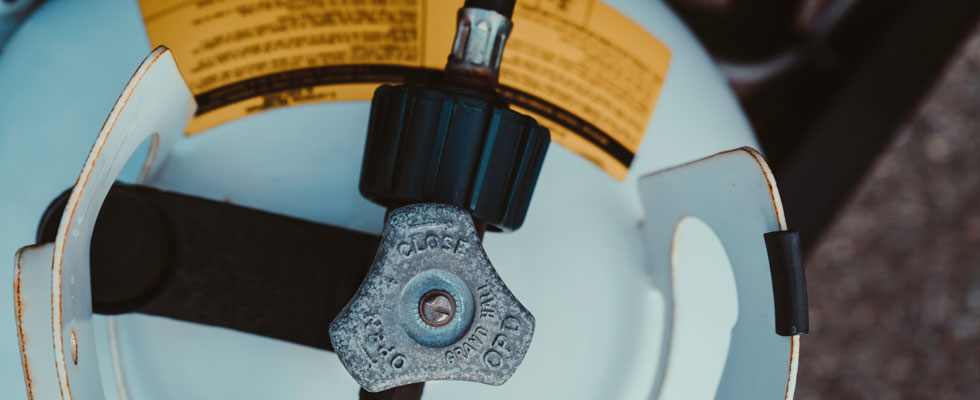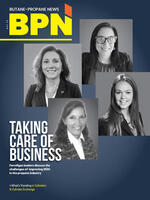
The National Propane Gas Association’s (NPGA) Cylinder Exchange Council was founded in the 1990s with the goal of addressing issues that face propane cylinder exchange. If you review its track record, it’s been a successful endeavor. Here are a few accomplishments, taken from the council’s introduction letter:
- The council was instrumental in changing the International Fire Code requirements for cylinder cage separation distances from doors so the requirements would work congruently with National Fire Protection Association (NFPA) Code 58.
- It was successful in preventing the state of Wisconsin from forcing retailers to refund money for propane left in cylinders being exchanged (a regulation that, if adopted, would likely have spread to other states).
- It helped modify a proposal developed by the Joint Fire Service Committee that would prohibit the use of automated cylinder exchange cabinets — the results of which can be found in the 2012 International Fire Code.
- It initiated a research program aimed at developing technical information to allow more alternatives to the requirements in the fire code for protecting cylinder exchange cabinets from vehicle impact, resulting in favorable changes to NFPA 58 LP-Gas Code and the International Fire Code.
Currently comprised of 10 marketers, nine manufacturers and two distributors or service providers, the council provides a sounding board and serves as lead for issues related to the manufacture, distribution and sale of cylinders, cylinder cages and cylinder exchange programs. “When the council was started, the exchange business was in its infancy, and with my role in codes and standards, we kind of naturally gravitated toward that area of focus,” said Bruce Swiecicki, P.E., senior technical advisor at NPGA.
Swiecicki noted the benchmarking focus present in other NPGA councils would have been difficult to replicate in this one, because the companies involved in this council work too closely in the same market segment. So, the council has played an instrumental role in the development and modification of codes and standards that would have a significant impact on the cylinder exchange market and its players.
Most recently, the council was one of several industry organizations writing letters and advocating for a change in policy in the state of New York during the ongoing COVID-19 pandemic. As more restaurants moved to outdoor dining for its customers, propane provided these businesses a necessary service of outdoor heating during colder months.
With New York included in the list of states enacting legislation to ban the use of propane and move to electrification, the council joined groups fighting this action and, with the help of a new New York City mayor taking office, were successful in attaining a reprieve allowing the use of cylinders for outdoor heating in the city.
“In my mind, this is the importance of the cylinder exchange council — we are here to combat the misconceptions of propane cylinders and exchange programs to others who may not be as familiar with propane,” said Steve Derrick, national account manager at Superior Plus Energy Services. “We can ... say, ‘Hey, this is a problem, and here’s what we should do instead.’ And provide the facts and a counter-solution for it that works for everyone.”
Currently, the council is focused on a number of trends and challenges affecting cylinders, particularly the updating of NFPA 58 and its requirement for inspecting face seals on cylinder valves and the efforts by the National Institute of Standards and Technology to collect data on cylinder tare weights.
Outside of these issues, the industry is still adjusting to the influx of new customers for outdoor, residential use caused by pandemic lifestyle changes. Doug Mann, vice president of operations at Makeen Energy, said the average grilling customer has gone from having one or two cylinders at their home at any given time to now keeping two to four because of increased consumption.
“This pulled the cylinders out of our refurbishing plants; it pulled them out of the trucks delivering them at a faster rate; and it pulled them out of the cages. The industry is still trying to get caught up to that level of production,” Mann said.
Mann said while this happens, the council is also trying to forecast what this trend will do when the pandemic comes to an end. Will these lifestyle changes be permanent? Or will we see an influx of cylinders back into the cages and the refurbishing plants?
“It’s really been a tricky environment to navigate, especially because some of these larger exchange people had national contracts with large companies and quotas they have to fill. This left some of the smaller companies to fill in the gaps for the average consumer,” Mann said.
Supply chain constraints and material challenges are also an issue to getting cylinders made and where they need to go according to market demand. However, Mann mentioned that while getting the materials themselves was an issue earlier on in the pandemic for manufacturers, what a lot of companies are seeing now is more of a logistics issue.
“... We are working on large projects and seeing parts we need held up at port and waiting for clearance. And then once that happens, then it’s an issue of logistics — there is a driver shortage and then costs and wages are increasing, which trickles down to us,” Mann said.
As the industry continues to navigate these uncertain waters, Mann and Swiecicki both mentioned the council’s goal to add several member companies involved in cylinders for forklift use.
“This is an area of growth for our segment of the market, and we’d like to get some of those players involved,” Swiecicki said. “There’s going to be a lot of codes and regulatory issues that accompany the industrial use case as it grows, and we want to be proactive about planning for them.”
Interested in getting involved with the Cylinder Exchange Council? The council is comprised of NPGA members who actively participate or are interested in the cylinder exchange segment of the industry. Email Swiecicki at bswiecicki@npga.org to learn more.


